
Arquivo para a ‘Jornais on-line’ Categoria
The limits of total war
With hope and with great fear of a total war, which would culminate in a great civilizational crisis, we post weekly analysis of the evolution of situations in which the limits of a total war can be broken and lead to an inevitable confrontation.
which would culminate in a great civilizational crisis, we post weekly analysis of the evolution of situations in which the limits of a total war can be broken and lead to an inevitable confrontation.
Now countries in Europe and the United States are trying to understand these limits, recognizing that Israel exceeded this limit by assassinating the leader of Hamas in the middle of Iranian territory, the idea of putting an end to the tension created runs the risk of not being heard by Iran and a war Direct agreement between Israel and Iran would involve the world’s great war powers.
The situation in Ukraine is similar, although in the opposite direction, the country was severely attacked and punished in these two years of war on the way to the destruction of its energy sources, now it has organized a bold retaliation by invading a Russian border zone and establishing itself in an area of around a thousand kilometers, in the Kursk region of Russia (photo region of bridge destroyed).
Yesterday, Sunday 18/08, Volodimir Zelenski spoke for the first time that the objective is to create a “buffer zone” to prevent attacks in the region of the country’s second largest city, Kharkiv, however this advance infuriated the Soviet leaders, who accuse the West to prepare and help Ukraine in the invasion, this limit was also exceeded there.
The sending of a submarine capable of firing missiles to the Middle East, according to White House spokesman John Kirby, who stated that the situation in the region was discussed with France, Germany, Italy and the United Kingdom.
On the other hand, an influential Russian deputy, Mikhail Sheremet, said on Friday that the presence of a military arsenal on Russian soil is “irrefutable evidence of foreign participation” in Ukrainian military action.
All of this is a pre-World War scenario, there is no longer a limit between Western involvement and these two outbreaks of war, there is always hope, the men who provoke wars can regain their serenity and understand that these limits should not be exceeded and go to a negotiation table, but tension escalated to maximum level.
Global tension grows
The death of the leader of Hamas, Ismail Haniyeh,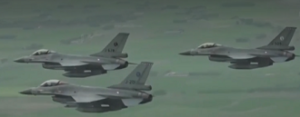 in the middle of Iranian territory by “a short-range missile” that was in Iran for the inauguration of the new president of Iran Masoud Pezeshkian, raised tension between Israel and Iran to the highest level, and the Iran’s response will be inevitable.
in the middle of Iranian territory by “a short-range missile” that was in Iran for the inauguration of the new president of Iran Masoud Pezeshkian, raised tension between Israel and Iran to the highest level, and the Iran’s response will be inevitable.
The sending of the former commander of troops in Ukraine, Valerri Zaluzhnyi, to be ambassador to the United Kingdom, also raises serious concerns not only due to the proximity of the British government, which will certainly remain informed of military actions, the new ambassador outlined a dark and painful for the future of the war in Eastern Europe.
Ukraine received the expected F-16 fighter jets (photo) to reinforce its air defense, thanks to Norway, the Netherlands and Denmark, apparently the donors of this shipment, however it is still waiting for others, the political result is a greater involvement of forces from other countries in the war.
Countries in the Balkans and Scandinavia have already begun compulsory conscription for military service fearing an expansion of the war.
Latin America is also suffering from the controversial Venezuelan election, the AP news agency obtained photos of almost 79% of the election minutes and would prove the election of the opposition candidate Edmundo Gonzáles, while the CNE, Maduro’s body for counting the ballots, gave the dictator as winner.
There were several protests on the streets, and according to Maduro himself there are already more than 2,000 people detained, with deaths and injuries in the demonstrations that are repressed by the military forces.
There is always hope for those who believe in peace, respect for cultural, religious and political differences, improvement in income distribution and help for needy populations. The problems of today’s world are justice and freedom, war only worsens these conditions.
Cyber blackout and wars
The blackout that happened last week is one of the biggest in history, it caused confusion in many airports (see the US Flights chart bisede), TVs, banks, hospitals and services that depend on digital communication, but it was not with military motivation, the The company CrowStrike, behind the blackout, declared Friday (19) that “this was not a cyber attack” and that the company’s team “is fully mobilized to guarantee the security and stability of the company’s customers”.
the biggest in history, it caused confusion in many airports (see the US Flights chart bisede), TVs, banks, hospitals and services that depend on digital communication, but it was not with military motivation, the The company CrowStrike, behind the blackout, declared Friday (19) that “this was not a cyber attack” and that the company’s team “is fully mobilized to guarantee the security and stability of the company’s customers”.
According to an interview with Rob D’Amico, a former FBI agent, despite there being no military motivation: “They may not be involved in what happened, but they are observing what happened, what the reactions were, the response times, how this has been corrected, so that if they consider an offensive cyber operation against the United States, they can map what was done”, he said in a statement to CNN.
It is worth remembering that the historic beginning of the Internet was a project with DARPA, an American department for strategic projects that envisaged network operation that did not harm communication, so the first electronic network was called Arpanet.
This is extremely strategic because a cyber failure can leave both the communication system and the defense itself defenseless, which depends on communications to be activated, extremely weakening the system that is under attack.
Ukraine has announced that it has managed to directly affect Russia’s command and defense systems, while Russia seeks to weaken Ukraine’s energy supply system and land communication channels, it also plans a railway in its domains on Ukrainian soil, revealing tactics differentiated defense and attack.
As war rhetoric and everyday political and ideological wars advance, a greater than cybernetic blackout is announced, minds and souls become increasingly cloudy and the dark horizon hides hopes, refuges and clearings.
Those who fight and desire peace lack nothing, not even what war and hatred try to take away from everyday peace, the moment of rest and leisure, not that fantasy of orgy and false freedoms that destroy a fruitful and happy life, there is always a shadow, a clearing and a pause for breath in the midst of modern acceleration.
“Even if I pass through the valley of the shadow of death, I will fear no evil” (Psalm 23:4) says the psalmist of the dark period of the Hebrew people, and thus those who desire and fight for peace sing joyfully.
Catharsis and moral cleansing
Political and moral liberalism does not want the term “being clean” to be used, most people who have experienced chemical dependency nevertheless like to use the word and the meaning is deeper than it seems.
term “being clean” to be used, most people who have experienced chemical dependency nevertheless like to use the word and the meaning is deeper than it seems.
Without an inner strength that helps us with frustrations and complex social situations, it is not possible to enter a new state of mind, a change of route, this means that what the Greeks call catharsis occurs.
The term coming from the Greek “kátharsis” means a state of psychic liberation (which can also be physical and moral) in which the human being overcomes some trauma, dependence or fear that comes from a psychic disturbance.
Few realize the value of being morally clean, at least making an effort to do so, the doctor and psychiatrist Antony Daniels who wrote several books about the destruction of culture, what in another way and analysis Adorno called “damaged life” is nothing but the observation of a malaise in civilization as analyzed by Freud or the forgetfulness of Being.
Antony Daniels wrote books under the pseudonym Theodore Dalrymple, in his analysis of the civilizing process he explains: “The first requirement of civilization is that men be willing to repress their baser instincts and appetites: failure to do so makes them, precisely because they are intelligent, much worse than mere beasts” and we have already reached this point.
The idea that we are “freeing” people by releasing their most animalistic instincts is nothing other than enslaving them through the most cruel form of dependence, so it is not a catharsis, but rather a path of difficult return, psychic dependence. some appetite.
In history, due to ignorance, people with leprosy were considered impure and were socially excluded. Today, this impurity is related to vices and moral or chemical dependence on instincts released without the necessary repression.
In a biblical passage from the Gospel of Matthew, a leper approaches Jesus and asks: “Lord, if you want, you have the power to cleanse me”. Jesus reached out his hand, touched him and said: “I want, be clean”. At the same time, the man was cured of leprosy.
Tensions and pressure for peace
The G7 summit managed to bring together 90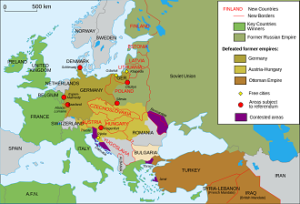 countries and met without the presence of Russia and without the approval of China, which considered Russia’s participation essential, the Kremlin’s reaction was ironic in relation to the meeting that demands that Ukraine’s territory be kept in In all its integrity, despite Zelensky’s diplomatic victory, the war battle continues to be cruel.
countries and met without the presence of Russia and without the approval of China, which considered Russia’s participation essential, the Kremlin’s reaction was ironic in relation to the meeting that demands that Ukraine’s territory be kept in In all its integrity, despite Zelensky’s diplomatic victory, the war battle continues to be cruel.
On Thursday (13/06) the USA signed a ten-year cooperation pact with Ukraine, which puts it on an equal level with the partnership with Israel, however a Russian nuclear ship that arrived in Cuba raises the level of tension close to the famous missile crisis in the 1960s, although today global involvement in the crisis is much greater as much of Europe feels threatened by Russian military incursions and militarization is increasing as a more nationalist political turn evolves.
In addition to the 7 countries that make up the G7 US, UK, Canada, Canada, Italy, Japan and France, another 82 countries attended the meeting that discussed a possible peace agreement in the war in Eastern Europe, highlighting the presence of Pope Francis, remembering that the Vatican is also a sovereign state.
Also noteworthy is Prime Minister Modi of India defending the well-being of the Global South, emphasizing the importance of Africa in global affairs, a point that escapes much debate, but some aspects of colonialism still survive, both in the economic and social aspects. cultural, and the defense of these countries is essential.
In 1918, with the end of the First World War, American President Woodrow Wilson proposed a “peace without winners”, although Germany should be better analyzed in the agrément (in the photo the countries of the Treaty of Versailles, 1919, which established the borders).
Little known, the 14 points that established a new peace policy after the Second World War, known as the 14 points, were the following: 1. Open diplomacy without secret treaties, 2. Free economic trade on the seas during war and peace, 3 .Equal trading conditions, 4. Decrease armaments among all nations, 5. Adjust colonial claims, 6. Evacuation of all Central Powers from Russia and allow it to define its own independence, 7. Belgium will be evacuated and restored, 8. Return of the Alsace-Lorraine region and all French territories, 9. Readjustment of Italian borders, 10. Austria-Hungary will be given an opportunity for self-determination,11. Redraw the borders of the Balkan region creating Romania, Serbia and Montenegro, 12. Creation of a Turkish state with free trade guaranteed in the Dardanelles, 13. Creation of an independent Polish state and and 14. Creation of the League of Nations.
Today there are new issues such as the real borders of Ukraine, the lack of a territory for the Palestinian people (Hamas is just a group from this nation), the forgotten Kurdish people, the conflicts in the Kashmir region (there is an Indian and a Pakistani one) , the end of conflicts and tensions in Africa that hide new colonialism and some guarantees of peace on Russia’s borders that can very well be understood (Russia calls them “neutral” regions) and the complex tension Taiwan x China.
Ultimately, it is not impossible, but it is necessary to draw a global map of peace and isolate governments and groups that threaten the freedom and autonomy of people.
Narratives, wars and dangers
In one of Byung-Chul Han’s recent essays,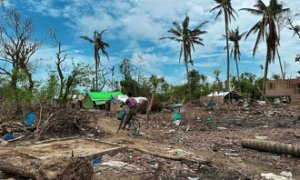 while the author remembers Hyppolyte de Villemessant, founder of the French newspaper Figaro and Walter Benjamin, essayist and philosopher who died in the 40s, the author does not fail to associate the modern narrative associated with new media, with storytelling called storyselling (product that sells).
while the author remembers Hyppolyte de Villemessant, founder of the French newspaper Figaro and Walter Benjamin, essayist and philosopher who died in the 40s, the author does not fail to associate the modern narrative associated with new media, with storytelling called storyselling (product that sells).
Thus, instead of provoking a reflection on the major problems of today, including the escalation of wars, the problem is old: “the reader of a modern newspaper jumps from one piece of news to another, instead of letting his gaze wander into the distance, and linger there. The long, slow and lingering look was lost” (Han, 2023, p. 17), that is, there is no reflection.
So it’s about creating a narrative favorable to this or that ideological vision, logic and humanity don’t matter, even in the face of tragedies we are more busy (not all of them fortunately) in creating a narrative to justify a certain position than to defend a principle. humanitarian, there is this or that war, but all of them kill innocent people, all of them, as Eduardo Galeano said, hide desires for power and exploitation over the nation to be dominated, but great empires have succumbed despite all the arrogance and genocides.
The resurgence of the war in Ukraine, the threats to the last stronghold of Palestinian refugees, the constant threats to Taiwan, in addition to incursions into Africa and now even South America, Venezuela is once again threatening Guyana with intense troop movements and provocations between the USA and Iran, warlike spirits ignite and even good but innocent people embark on these narratives, there is no other interest in wars: looting, deaths of innocent people and inhumanity.
There is no shortage of meetings between nations in Brazil, Europe and attempts to sensitize governments to the dangers of this war escalation around the world, but they come up against partial and partisan narratives, few minds are aware of the serious and civilizing danger of this escalation. , around the world, armaments are the only response that seems to reach the rulers, and so narratives of “heroic acts” of warlike events grow around the world that should shame those who invoke humanitarian principles, with the UN being the wars and environmental problems that have led starve more than 700 million people.
Even for a biblical or historical narration, where the intention is to build a “whole” narrative, there is a call for humanitarianism, when Cain kills his brother Abel, the divine question is “where is your brother?” (Genesis 4,9) and the narration suggested by Byung -Chul Han is that of the Egyptian king Psammenit who was captured by the Persian king Cambyses, and after the defeat makes the king humiliate when he sees his daughter turned into a slave and his son being taken to be executed (Han, pg. 21), however the Egyptian king only felt when he saw an elderly and frail servant among the prisoners and “hit his head with his fists and expressed deep sadness” (pg. 22), so the narration, says Han, “needs no explanation” (Han, pg. 22).
If we are capable of long, slow and lingering reflections, it is not difficult to understand the danger of the escalation of wars, of simple people like Psammenit’s service who suffer and die for issues that they barely understand, and that the narratives do not explain, they only try to justify the unjustifiable: death, jokes and lies.
As the philosopher Morin states, it takes resistance of the spirit, we are gradually losing the sense of love, hope and solidarity and if we read and investigate the news and facts of the wars we will see that there was nothing in them other than great genocides, robberies and In situations of hunger and misery, it is necessary to resist hatred and violence.
Han B.C. (2023) A crise da narração (The crisis of narration). Transl. Daniel Guilhermino. Brazil, Petrópolis, RJ: Vozes.
Natural tragedy in southern Brazil
We follow, generally on Mondays, the serious civilizational crisis that is nothing more than a mitigated war between the great powers, always with a risk of becoming a total war, three great empires are there in conflict: the American, the Chinese and the Russian.
serious civilizational crisis that is nothing more than a mitigated war between the great powers, always with a risk of becoming a total war, three great empires are there in conflict: the American, the Chinese and the Russian.
However, the natural tragedy with intense rains in southern Brazil gives us a solid warning.
The data as of yesterday afternoon (05/05) are sad and alarming: 334 municipalities affected, 16,609 people in shelters, almost 90,000 homeless, 780,725 people affected, 155 injured, 103 missing and 75 confirmed deaths (6 more investigated if under the action of rain), in addition, in 839 thousand properties there is no water and 421 thousand homes are without electricity, there are 113 roadblocks.
Businesspeople, several humanitarian organizations, and most media outlets are campaigning for funds and relief for that population, also the governor, mayors and politicians from the federal government are committed to mobilizing funds for relief, there were those who compared this emergency aid as typical of a war.
Social and sporting events were postponed, although there were million-dollar shows in the country where they didn’t even have the sensitivity to refer to the natural disaster (I won’t publicize it), but the Brazilian people are supportive, they are moved, they cry along with the gauchos and they mobilizes.
There is still rain these days and the rivers continue to rise, the tragedy could be even greater, and then the reconstruction process will not be simple, we have a chance to be more united and supportive and not live in an eternal polarization of hatred and misunderstanding.
Fortunately, the country’s bodies are supportive and I hope they remain, it would also be good to perhaps get a note from sectors of the judiciary, for example, the OAB or state courts.
Awakening the spirit of solidarity at this time can represent a good awareness of our debts to society and to the people who are always in difficulties. Those who live close to the humble population perceive a serious moment.
All humanitarian support to the people of Rio Grande do Sul, they will be comforted if they feel all our support.
Hyperpolitics and war
When Peter Sloterdijk wrote “All in the same 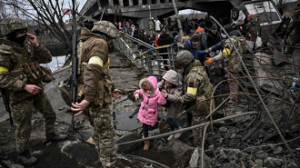 boat: essay on hyperpolitics” we were on the threshold of the third millennium, Manuel Castells was writing Sociedade em Rede and Edgar Morin was writing about Cabeça Bem done, rethinking reform, reforming thought, they were attempts to wake up and make humanity move towards a less dark future.
boat: essay on hyperpolitics” we were on the threshold of the third millennium, Manuel Castells was writing Sociedade em Rede and Edgar Morin was writing about Cabeça Bem done, rethinking reform, reforming thought, they were attempts to wake up and make humanity move towards a less dark future.
Sloterdijk also wrote “If Europe awakens”, he calls it the Empire of the Center and pays attention to its colonialist past and the need for a new future and rethinks war, a topic so linked in the country that triggered the Second World War.
These are all thoughts that tried to redirect a dark future from the possibility of a new war. In Everyone in the Same Boat, Peter Sloterdijk revisits the political project that was born in classical antiquity, the attempt to organize the State, and says: “How can they “talk” to such large numbers of people and convince them to feel like they are participating in what is “great” – until they reach the willingness to face death in exercises of millions against forces of equal order of magnitude, in order to assure “their own “successors what ideologues call the future” (Sloterdijk, 1999, p. 31).
Contrary to the optimism of Castells and Morin, not only justifiable, but desirable, of a more civilized and humane future, Sloterdijk warns that this connected hypersphere, see that social media were just nascent for these three great thinkers, was for the German, a dangerous future of hyperpolitics.
“The first gestures of this instinctive holism are attempts to describe the cosmos as a larger house and people as larger families” (Slotertijk, p. 32), and adds that in fact, “homo politicus and homo methaphysicus belong together historically; promoters of the State and prospectors of God are evolutionary twins” (Sloterijk, p. 33), of course it is not the view of everyone, much less of men in power, the great statesmen who think in this holism no longer exist and now it is the empire of force and monolithic, authoritarian and hateful thinking.
The Greeks’ political project for him can be called “metallomaniac”, but he warns that this is the man who “meddles in big, bigger issues to have something that he will look at and then abandon. But should they call those who, once they have grasped great things, will never abandon them? I propose megalopaths” (page 34).
Also great empires: the Persian, the Roman, the Mongols who came to dominate half of Europe, the Turkish-Ottoman and more recently Napoleon and the “forgotten” colonies in Africa that were nothing more than an extension of the Central Empire, as Sloterdijk calls it the Europe.
“State Humanism has since been the search for a fair center – and since the Roman reception of this Greek idea, this search has carried its name still known today: Humanity” (pages 35-36).
Sloterdijk questions this model of homo politicus, the “pontifex maximus”, “how do we become raja? How do we become Caesar? How do we become consul, senator, emperor? How must someone live to enter the history books like Metternich, Lord Morlborough or Bismark? (page 37).
The idea of politics as metanoia, this was the initial intention of Paideia for example, is no longer true in war, Sloterdijk quotes Goethe: “the man who does not suffer scourges cannot be educated”.
2 years of war and diplomacy
February 24th marked 2 years of Russia’s war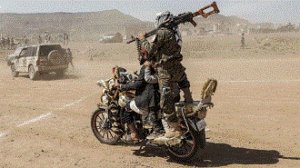 with Ukraine, which the Russian government calls a “special operation”, which has already killed thousands of civilians in Ukraine, which caused a rupture with the West and which has no prospect of a truce and can scale to Europe.
with Ukraine, which the Russian government calls a “special operation”, which has already killed thousands of civilians in Ukraine, which caused a rupture with the West and which has no prospect of a truce and can scale to Europe.
Despite the weakening, Zelensky’s speech promised victory, although he suffered setbacks at the beginning of the year on several fronts, Putin’s speech is increasingly fierce and eloquent and a direct confrontation with NATO forces, the which would be a tragedy for the entire planet due to the war and nuclear potential that would be involved.
In Palestine, Israel continues with bombings already reaching the border city with Egypt of Rafah, in the suburb of Shaboura, according to the Gaza Ministry of Health, 97 people were killed and there were also attacks in some neighboring villages.
Qatar will host a meeting between Hamas and Israel with the aim of finalizing a truce agreement this week, according to Egyptian sources, the United States always considers a definitive peace agreement possible, but continues to support Israel and continues conflicts with the Houthis of Yemen that prevents the passage of American-flagged cargo ships.
A new strategy in Yemen has been tactical forces, led by the United Kingdom (pictured), that assist in both mapping and bombing the Houthis’ land bases, as they have no vessels, carrying out attacks on ships from land bases.
Brazilian President Lula caused a serious crisis with Israel by comparing the current war in Israel with the Nazi period, precisely the biggest genocide and the most cruel war against the Jewish people and provoked reactions from the Netanyaho government, its allies and Jewish Brazilians who They demand equal treatment to that given to Palestinian refugees.
The series of wars and retaliations harden hearts and put into combat the forces that polarize power around the world. There are few countries that do not align themselves, although the hope of peace resists in a heroic way.
As the century-old educator and philosopher Edgar Morin says, it takes resistance of the spirit.
Perspective of war and intoxication of the spirit
The tone and actions of a non-stop war are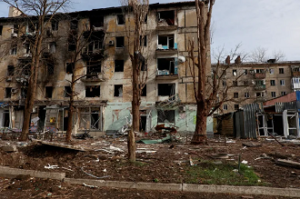 expanding, there are few nations and voices that are not under what the century-old philosopher Edgar Morin calls “collective intoxication”, and calls for there to be resistance capable of reacting to all the lies spread .
expanding, there are few nations and voices that are not under what the century-old philosopher Edgar Morin calls “collective intoxication”, and calls for there to be resistance capable of reacting to all the lies spread .
The commander of NATO forces, Chris Cavoli, announced an army of 90 thousand men, and an exercise called Steadfast Defender 2024, which should take place in May, with 50 ships, from aircraft carriers to destroyers, 80 fighters, helicopters and drones participating. and more than 1,100 combat vehicles, including 133 tanks and 533 infantry vehicles.
Russia misleads and says it would not invade Latvia and Poland, it took the city of Avdviika (photo) once and for all, one of the strategic fronts and where the war is most violent, Zelensky minimizes the loss by stating that he retreated to “save lives”, however the war remains bloody.
In an interview this Sunday (18/02) Putin says that Ukraine “is a matter of life and death” for the country, the death of opponent Navalny had repercussions throughout the world and will be a watershed for those who clearly support a regime warlike and authoritarian.
In the Gaza strip, the city of Rafah with millions of Palestinian refugees remains under Israeli threat, a hospital was invaded because there was news that “hostages were there”, but they were not found, only weapons and with the invasion patients in the ICU died.
There are international calls for Israel not to put civilians at risk, the majority of whom are taking refuge in Rafah, and Egypt has built a huge wall so that they cannot flee to Egypt and this puts thousands of women, children and other civilians at risk. who are there and have nowhere to escape.
Negotiations become more difficult with each Israeli action and the involvement of Iran and other Arab countries becomes more inevitable every day, it will be on this front that a possible 3rd. war will occur, the resistance of the spirit claimed by the century-old philosopher and educator Edgar Morin must fight against fanaticism and hatred that only spread death and war.
In a previous interview published in the Italian newspaper La Reppublica, Morin had said: “all war embodies Manichaeism, unilateral propaganda, war hysteria, espionage, lies, the preparation of increasingly deadly weapons, errors and illusions, unexpected events and surprises”, it takes a resistance of the Spirit for Peace.

